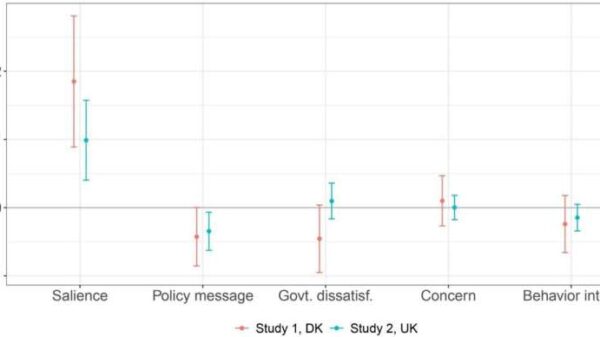The landscape of customer onboarding is undergoing a significant transformation, particularly within the banking and financial sectors, due to the emergence of electronic Know Your Customer (eKYC) systems. These solutions streamline the identity verification process, making it critical for organizations that prioritize efficient and secure customer engagement.
The Shift from Traditional Methods
Historically, onboarding customers involved cumbersome, labor-intensive procedures requiring face-to-face interactions and extensive documentation. For banks, this often meant lengthy background checks and physical form assessments, which slowed down operations and frustrated potential clients. In contrast, eKYC technology simplifies these processes, allowing organizations to enhance customer experience while managing risks effectively.
The need for efficient onboarding is not just about convenience; it has tangible implications for a company’s profitability. As customer expectations evolve, businesses must adapt to provide solutions that are both compliant and user-friendly. Today’s consumers are tech-savvy and prefer to complete tasks quickly, often from the comfort of their homes.
Understanding eKYC
eKYC represents the digital evolution of customer identification and verification. This system leverages advanced technologies to authenticate customers securely and efficiently. Essentially, eKYC involves the electronic collection of customer data, which is then verified against various databases. This method is not only more efficient but also more cost-effective and precise compared to traditional verification techniques.
The eKYC process is composed of several key steps designed to ensure accurate identity confirmation:
1. **Initial Data Collection**: Customers provide essential identification details, including name, address, date of birth, and identification numbers. This information is collected through secure mobile applications or online platforms.
2. **Document Verification**: Once the data is submitted, the system verifies the authenticity of the identification documents. Advanced technologies, such as optical character recognition (OCR), are employed to compare the provided information against established databases, ensuring that no fraudulent activity is associated with the ID.
3. **Facial Recognition Technology**: This critical component compares a live selfie of the customer to the image on their ID. Facial recognition algorithms analyze various points on the face to confirm identity, significantly reducing instances of identity fraud.
4. **Liveness Detection**: To combat spoofing attempts where a photo or video might be used instead of a live person, eKYC utilizes liveness detection. This technology assesses signs of life, such as blinking or movement, confirming that the individual is present and engaging with the system in real time.
5. **Cross-Referencing Data**: After successful identity verification, the system cross-references the customer’s data with global databases, including watchlists and credit bureaus, helping institutions assess any potential risks before granting access to services.
6. **Compliance and Risk Analysis**: All gathered data is evaluated for compliance with relevant regulations, including Anti-Money Laundering (AML) and Counter-Terrorism Financing (CTF) laws. This phase is crucial, as non-compliance can lead to substantial fines for financial institutions.
7. **Final Approval and Onboarding**: Once all steps are completed, customers receive immediate approval, enhancing their loyalty and retention as they appreciate the streamlined process.
The advantages of implementing eKYC systems extend beyond mere efficiency. Key benefits include:
– **Speed and Convenience**: Onboarding that once took days or weeks can now be completed in minutes.
– **Cost Reduction**: Automation minimizes the need for extensive staff involvement, allowing companies to allocate resources more effectively.
– **Greater Security**: Biometric identification significantly reduces the risk of identity theft and fraud.
– **Regulatory Compliance**: eKYC systems are designed to be flexible, enabling institutions to maintain compliance without frequent system overhauls.
– **Enhanced Customer Experience**: Quick onboarding processes help prevent customer drop-off and foster loyalty.
While the advantages of eKYC are compelling, organizations face several challenges in implementation:
– **Privacy Issues**: Handling sensitive customer information raises significant privacy and security concerns. Companies must prioritize data encryption and comply with data protection regulations, such as the General Data Protection Regulation (GDPR).
– **Technology Dependence**: Effective eKYC systems require robust technology and infrastructure. Many organizations struggle with integrating these systems into their existing frameworks, often leading to increased financial costs.
– **User Resistance**: Some customers, particularly those less familiar with technology, may hesitate to embrace online onboarding. Providing user-friendly interfaces and training programs is essential to mitigate this resistance.
The Future of eKYC Technology
The outlook for eKYC systems is promising as digital solutions continue to advance. Innovations such as artificial intelligence (AI) and machine learning (ML) are expected to enhance identity verification processes, enabling even more accurate assessments. Additionally, the ongoing development of biometric technologies will further improve reliability and security.
The integration of blockchain technology may also revolutionize eKYC by establishing a decentralized identity verification system. This shift could enhance security, granting customers greater control over their data while minimizing the risk of data breaches.
In conclusion, eKYC systems and other digital onboarding technologies are poised to transform the customer onboarding experience for banks and other industries requiring secure identity verification. These systems offer valuable opportunities for organizations to remain competitive by streamlining processes, enhancing security, and ensuring regulatory compliance. As technology evolves, companies that embrace eKYC solutions will likely lead the charge in digital transformation, delivering superior service while maintaining customer trust in an increasingly digital landscape.




































































